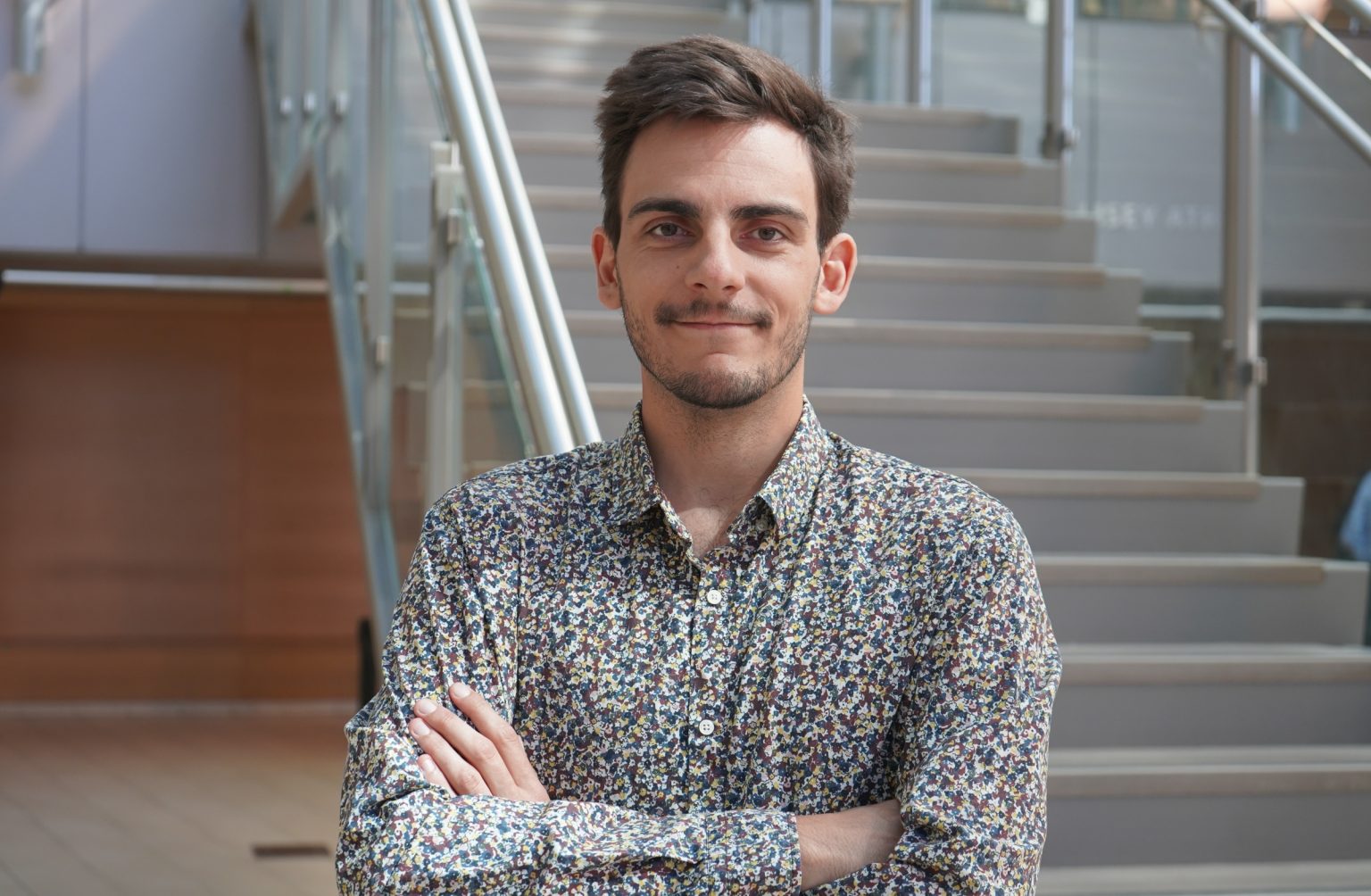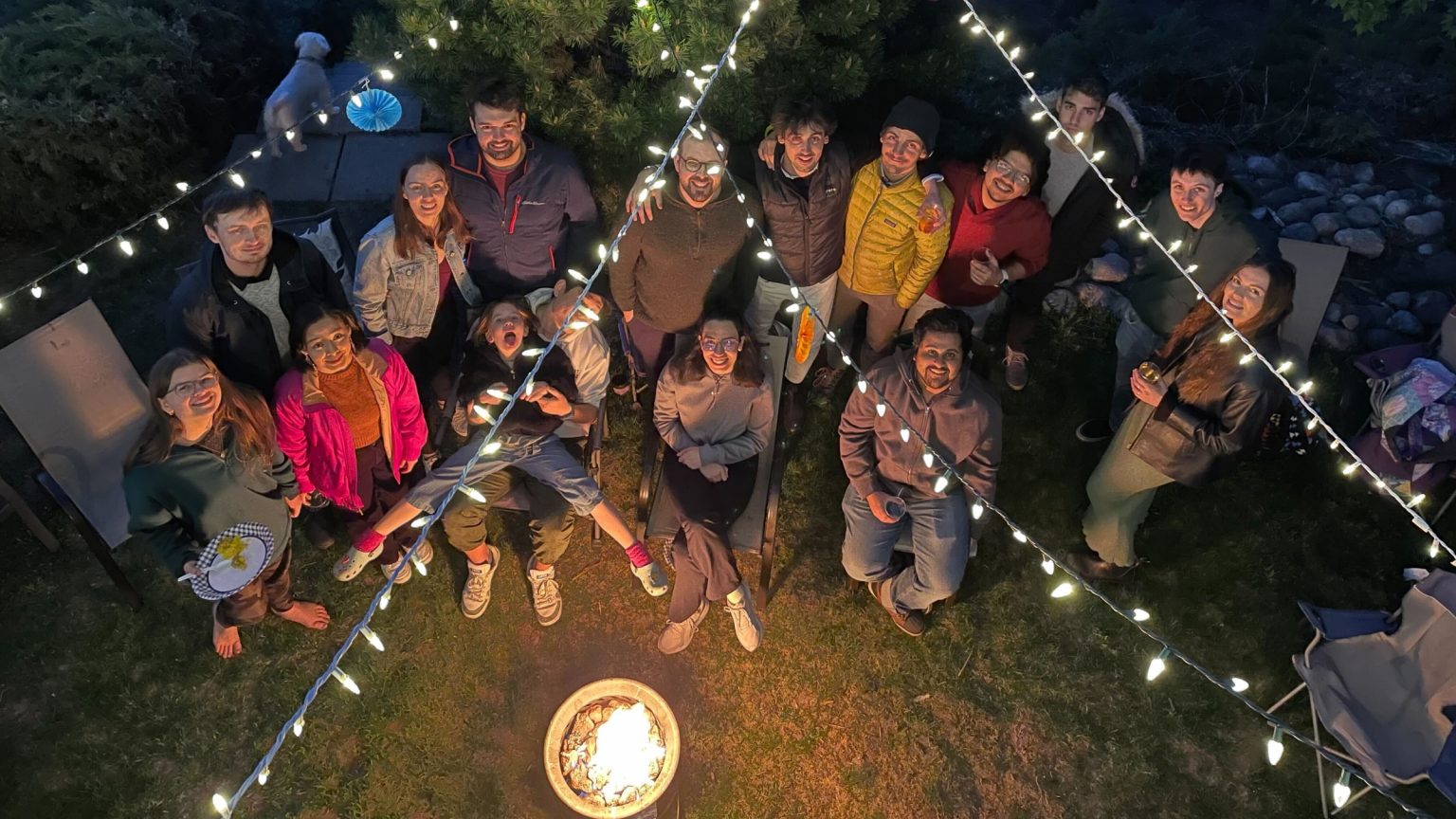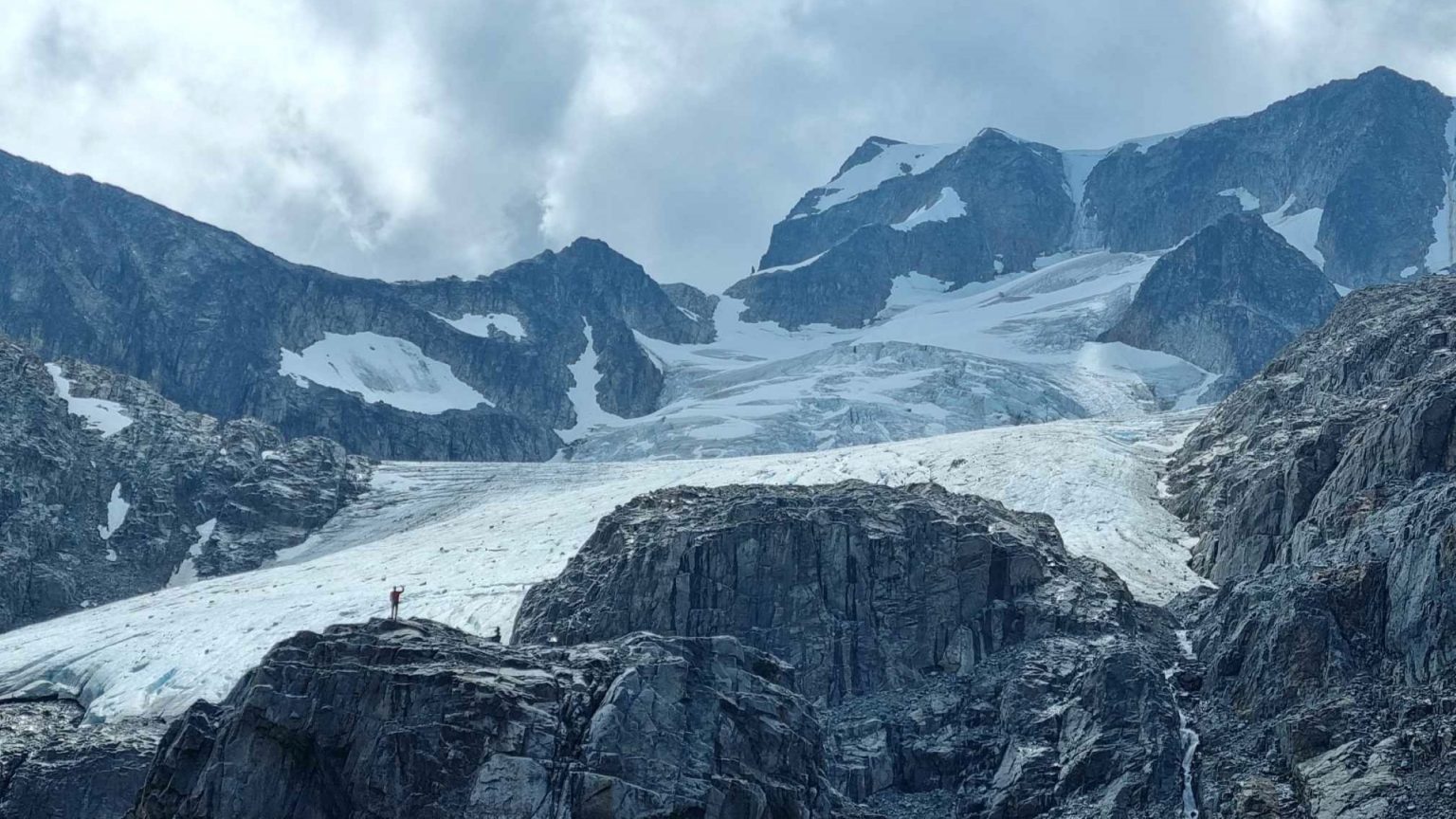
Meet Kasper Juel Petersen who completed his PhD in Mechanical Engineering in August 2024, under the supervision of Dr. Joshua Brinkeroff at UBC Okanagan’s School of Engineering.
Kasper was awarded the prestigious Carlsberg Foundation Visiting Fellowship to fund a two-year postdoctoral fellowship to University of Oxford. Valued at $200,000 CAD over two years, this major fellowship will allow Kasper to advance the research he began at UBCO on mathematical modelling of thermal fluctuations in metastable fluids. He commenced his postdoctoral fellowship at University of Oxford’s Mathematical Institute and Linacre College in October. Notable mathematicians associated with this historical institute include Christopher Wren and Edmond Halley.
“I’m incredibly proud of Kasper, especially the way he challenged himself, branched out into totally new and unexplored areas, never feared the unknown, and was always eager to learn new things. He was willing to explore new, unknown, and potentially dangerous paths along his PhD journey,” said Dr. Joshua Brinkerhoff, Associate Professor and Associate Director – Research & Industrial Partnerships for the School of Engineering.
Read Kasper’s profile below.
Tell us a bit about yourself
My name is Kasper Juel Petersen and I am originally from Horsens, Denmark. I recently defended by PhD in Mechanical Engineering which I started in 2019. I lived with my partner Sara in Kelowna while attending UBCO, and now live in Oxford, UK.
What drew you to UBC Okanagan and the School of Engineering?
Primarily my supervisor was the attractor—it was very important for me that a prospective supervisor and I would have aligned values. Having already worked with Dr. Brinkerhoff prior to my PhD during my MSc, I knew that we would make a great fit for my PhD and that I would get significant academic freedom to pursue my research interests. Secondly, I also came here for the access to the outdoors. Going into a prospective PhD, it was very important for me to be able to balance my research with skiing, hiking, mountain biking, and climbing.
Describe your graduate student experience at the School of Engineering. What has been the most rewarding aspect? The most challenging?
The PhD-experience is a roller coaster for most people, and this was certainly also the case for me. My PhD project ended up revolving around a topic I had virtually no formal training in and the learning curve never seemed to plateau for a long time.
After two-three years, I started to feel comfortable with my topic, the underpinning theory, and required methodology for my project. I had as many exhilarating eureka moments after learning experiences and small successes, as I had disappointments about realizing major misunderstandings and flaws in my developed work. Furthermore, even though I was very conscientious about maintaining a healthy work-life balance throughout the program I was still challenged by that, especially towards the end of the program. Luckily, I was well-supported by my partner, family, friends, and supervisor who helped me persevere through until the end.
During my fourth year all the puzzle pieces—which I until then had perceived to be predominantly mutually incompatible—started coming together in an uncanny way, around when I ventured abroad for a research visit to the USA.
Without a doubt, the most rewarding experience of the program was the culmination of the thesis defense. It was such a pleasure and privilege to share five years of research with my committee, colleagues, family, and friends.
To my surprise, the whole event was over in what felt like a half hour. It is very much a memory that will stay with me and so I can always go back an relive it!

Kasper with fellow students and faculty at a PhD defense celebration
How has your time at UBC prepared you for your future?
Naturally, a five-year PhD is filled with opportunities for learning and growth, on personal as well as technical levels. I would say that if one actively seeks out these opportunities and is proactive in creating them, it not only qualifies you for a job in academia and industry, but it also gifts you with a wonderfully versatile skill-set that I reckon is rarely learnt anywhere else.
Notwithstanding the obvious, a PhD specializes you so much that you likely will have a hard time successfully explaining in layman’s terms what it is you do. As such, you can create for yourself a very unique professional profile only shared among a small community of professionals in your country (or sometimes the world). In addition to becoming a proficient science disseminator, writer, programmer, reader, etc. you also learn how to independently manage a complex, very long-term project (that most likely will not be “complete” at the conclusion of your PhD).
My PhD made me a more resourceful and resilient person. When I got to the forefront of my research topic, I often found myself technically stuck in so many seemingly dead-end problems. At that point, it was beneficial to be an ambivert—I possess the right amount of introversion to comfortably focus on the problem for very long periods in solitude, and extroversion to reach out to other experts that may be able to help me solve my problem at-hand. More often than not, such experts, even the busiest, are happy to informally chat over a Zoom connection.
Tell us a little about your research
I research the complex intricacies of liquids and gasses. For my PhD research I explored the physics of Brownian motion in liquids named after the Scottish botanist Robert Brown who observed that pollen suspended on a water surface over extended periods in time tend to move around due to random “thermal fluctuations” (i.e. in density and energy) and collisions with the water molecules. Despite these fluctuations being microscopic, they are very relevant in many industrial applications and biological processes. An example is phase change (boiling) where fluctuations are partially responsible for provoking the creation of a new gaseous phase (bubbles) one very small length scales and affect the ensuing “life” of the bubbles as they grow to their largest macroscopic sizes.
I developed a mathematical model of thermal noise based on the so-called Fokker-Planck equation which was intended to study the large-scale effects of such noise in computational simulation of phase changing liquids.
You were recently awarded the Carlsberg Foundation Visiting Fellowship to fund a two-year postdoctoral fellowship to University of Oxford. Congratulations. What does this award mean for your future? What will you be doing during your fellowship?
Thanks! This fellowship will be definitive for the future of my research and my academic career as it gives me the opportunity to bring my research to a complete stage where it can be applied to problems of more practical impact. I suspect that thermal fluctuations and the underlying theory regularly confounds most researchers in the topic. This was my experience, and consequently I only got to apply my model towards the end of my PhD.
For the fellowship, I will primarily continue the development of my Fokker-Planck model and extend its mathematical, computational capabilities and application. Practically speaking, this means I will be preoccupied with a lot of mathematical derivation and model formulation, as well as programming. In addition to phase change, I will be seeking out new avenues for research.
I am working out of the Mathematical Institute which houses research groups studying pure and applied mathematics with too many research topics to count, in not only biology, chemistry, and physics. I am a member of the Oxford Centre for Industrial and Applied Mathematics (OCIAM).
I am very excited to interact with the Institute’s world-leading academics, colleagues in Europe, and local industries.
It is especially exciting to come with an engineering background and experience the ways of a mathematics department. I am sure it will be a wonderful learning journey that will get me closer to what I love doing—science!
I want to use the opportunity to sincerely thank the Carlsberg Foundation (and by extension consumers of their alcoholic beverages) for supporting my research and career.
What are your goals or next steps after your fellowship?
After my fellowship I will be pursuing a professorship.

Kasper found balance through skiing, hiking, mountain biking, and climbing during his PhD studies.
What advice do you have for future / current engineering grad students?
The top advice from my PhD would be;
- Have a life outside of research. I cannot emphasize enough the importance of cultivating hobbies and friendships throughout your program. Any PhD program is very challenging and a long haul, and it is not sustainable to only work.
- Pursue research abroad in another world-leading research group. Generally, be proactive in meeting people and fostering relations at the university and in the research community, locally as well as abroad.
- Make a solid effort to apply for as many scholarships and fellowships as possible prior to, and during your PhD. Both in Canada and in your home country, if you were an international student, like me.
- Get comfortable with seeking technical feedback outside of your own research group. Inevitably you will be engaged with a problem specialized beyond the expertise of your group, do not hesitate to reach out to experts from other groups and universities for inspiration, both locally and abroad. In my experience, most academics are happy to share their knowledge.
- If your program and your supervisor is encouraging of it, and if your goal is to pursue and academic career, don’t be afraid to pursue challenging, unconventional, risky research directions. But have regular, transparent discussions with your supervisor and peers about the pitfalls and potential benefits of your research direction. If you identify an avenue that you can argue is worthwhile, commit fully to it and do not worry too much about the risks. I pursued a challenging and obscure research trajectory but found that it was rather serendipitous.